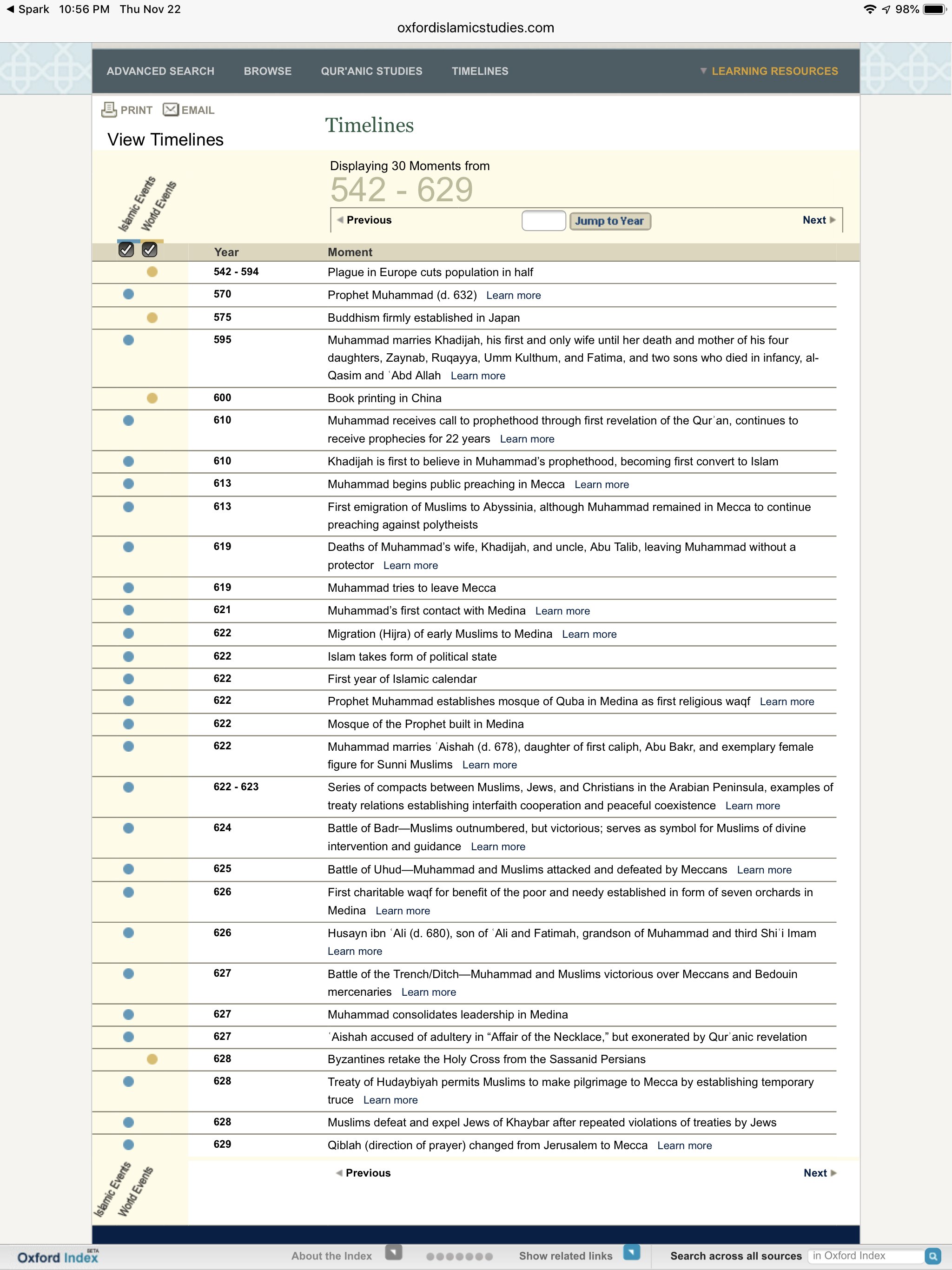
Biographies
ʿAbd al-ʿAzīz al-Duri
ʿAbd al-ʿAzīz al-Dūrī (b. 1919), Iraqi educator and Arabist social historian, was born in Baghdad; he was educated there and at London University. He taught history at the Higher Teachers’ College and the Faculty of Arts, served as translation and publications director at the ministry of education, and dean of arts and then rector of Baghdad University, then ended his working career as professor of history at the University of Jordan in Amman. Al-Dūrīʿs publications include two studies on the political and financial history of the ʿAbbāsid era, a study of the economic history of Mesopotamia in the tenth century, a study on the origins of Arab historiography, and studies on the history of Arab nationalism, anti-Arab nationalisms (shuʿūbīyah) and Arab socialism.
In addition to his valuable studies on Iraqi history, al-Dūrī has contributed significantly to the field of the socioeconomic history of the Arab world. His suggestion that the emergence of an “Arab nation,” although closely tied to the unity of language, was in many ways molded by a unified, or at least similar, socioeconomic historical pattern, is pioneering. As do most influential Arab nationalists, al-Dūrī regards language as the major factor in forming an Arab identity, thus making Arabism a cultural, rather than an ethnic, regional, or religious matter. Like many Arab nationalists and some cultural Islamists, he tends to subsume Islam into Arabism: Islam unified the Arabs, giving them an intellectual and ideological basis by means of which they formed a state; through the latter they spread Islam even further afield, to the extent that to non-Arabs Islam and Arabism became virtually indistinguishable.
Unlike the most influential Arabist, Abū Khaldūn Sāṭiʿ al-Ḥuṣrī, who refused to consider economic interests among the main components in forming a nation, al-Dūrī has always implied that one of the bases of the Arab nation was the emergence of a single path in the development of the Arab economy. For example, historically there has been a unified Islamic position toward the ownership (mainly public) of national resources such as land, water, and minerals, and a comprehensive system of taxation and tribute with similar features, coinciding with distinct urban development, some improvement of agriculture, and great expansion in trade. This pattern gradually led to the emergence of a semi-feudal system of a distinct bureaucratic nature (iqṭāʿ ʿaskarī) and the stateʾs crucial role in the economic affairs of the society.
Al-Dūrī emphasizes the social and economic processes through which the various peoples conquered by the Arabian Muslims were Arabized in language and culture (as the conquerors and the conquered mingled in various activities in town and country) and how, following the consequent decline in tribalism, one nation, which he defines as an Arab (rather than an Islamic) nation, then emerged. He pays special attention to the “popular classes” and to various social movements (for example, al-ʿammah, al-ʿayyārūn, al-futūwah) often overlooked in conventional historical studies.
“Al-Dūrī sees the reemergence of Arabist ideas in the nineteenth century as an attempt to revive an earlier cultural heritage that had been abused by non-Arab rulers. The emphasis on Arabic (the language and the culture) as a nationalist link “had its roots in the Arab heritage and historical conscience, and was now being developed as part of the Arabsʿ self-consciousness vis-à-vis the West,” and increasingly expressed in a more comprehensive (pan-)Arabist fashion. Unlike some other authors, al-Dūrī contends that there is no observable influence or frequent reference to Western national theories in Arabic writings on the subject. Arabist concepts on nationalism are, he believes, authentic but still incomplete: they have not reached the level of forming “a general theory of Arab nationalism”; they have not linked their idea of the Arab nation to any distinct concept of the state; nor have they clarified the groups or classes that “embody the Arabist idea” and, hence, the socioeconomic orientation that the Arabist movement is bound to follow.
ʿAbd al-ʿAzīz al-Duri
405 – 004-a
https://discerning-Islam.org
Last Update: 02/2021




